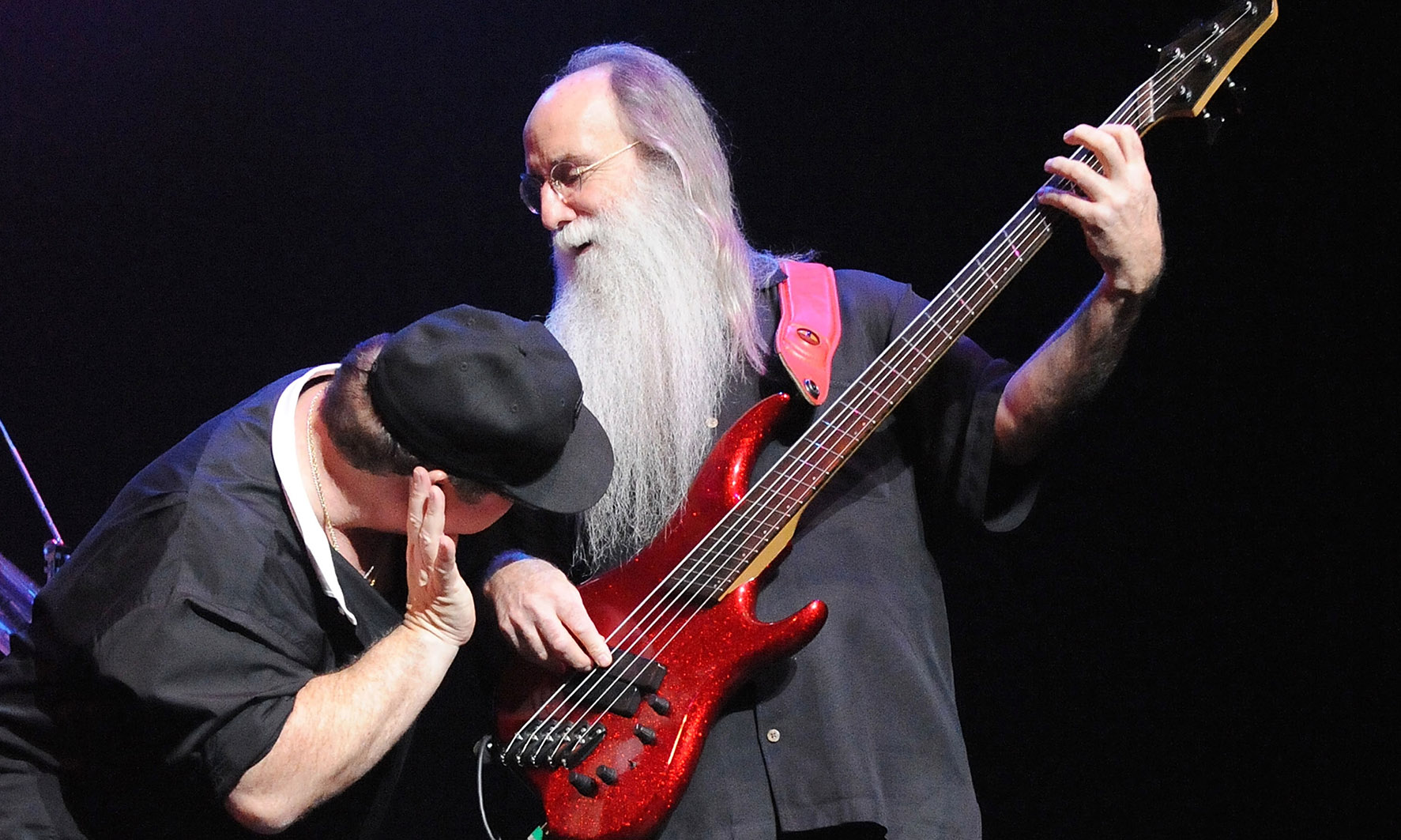
Somewhere, not long after Leo Fender’s invention of the electric bass guitar, a flowing beard, wire-rim spectacles, and a biting sense of humour became synonymous with the instrument. Those attributes belong to Leland Sklar, a bonafide bass icon and one of the most instantly recognisable figures in contemporary music.
Wend your way through the vast archive of Sklar's back catalogue and you’ll find tracks that highlight various aspects of his well-honed playing style: a deep pocket, under-sung syncopation, and song-friendly sub-hooks.
A seasoned studio player, Sklar’s also a stickler for being ready to record the first time he hears a piece of music. “If someone sends me an mp3 of the song in advance, I usually won't listen to it,” he told BP. “Or worse yet is when someone wants to rehearse a few days before the session. That's the kiss of death, because we're going to play some fresh, mind-blowing shit, and it's all gonna be gone when we hit the studio. Unless a song is deeply complicated, by the fourth take I'm starting to daydream.”

Beyond the visual, ask any true bass fan about Mr Sklar, and a reverential reflection of classic recordings and performances comes to mind – the result of a remarkable career. So does Sklar see himself as an intellectual bass player?
“Even though I had years of training and theory, when that red light comes on I don't really think about what I'm doing; I'm very visceral – I go by the seat of my pants and whatever my mood is in the moment. The best scenario for me is when someone has saved me the trouble by sketching out a basic chord sheet, so I can immediately start reacting to the song. The song remains supreme.”
A slamming track that has a taste of all of these attributes is Steve Lukather's Stab in the Back, from his 2008 solo release Ever Changing Times, which the guitarist describes as his nod to Donald Fagen. Sklar played his “Frankenstein 4-string” and teamed up with drum ace Abe Laboriel Jr.
You can watch a playthrough from Sklar's YouTube channel below.
Listen for Sklar’s fat pocket in the verse, and how he shortens every other downbeat-anticipating A. The pre-chorus is also full of Sklar goodies. Instead of sticking to a root-5 rock bossa pattern, Sklar jumps the octave, and anticipates the coming Fmaj7 chord by ending the measure on a C. The next bar is pure melody, as Sklar outlines a descending Fmaj7 chord, before leading with a trademark gliss into the A and a quarter-note triplet on beat three. Then, with the vocals laying out, he lets loose with an ear-grabbing F#m pentatonic fill.
Similar magic can be found in the chorus: Sklar begins a diatonic climb up to the coming G chord, only to change direction midway and chromatically descend into it. Placement is the key, as he lands on beat three with the 3rd to start his melodic movement to the Cmaj9 chord.
Feeling as liberated and reactive as he always does, Sklar then issues a syncopated descending line starting on the 9th of the chord, which keeps its motion going into the next measure. Finally, he doubles Lukather's guitar riff. Listen also for his spontaneous bass licks played over the A7 chord during the track's final minute.
These days, Sklar has circled back to his singer/songwriter roots with the Immediate Family and a new documentary that follows the unsung session musicians of the 1970s. “We've been around a long time and this is kind of what this film is about. It's just kind of a reflection on an incredibly golden age of music that's set through the '70s up to this point. It's been an incredible run.”
Immediate Family is available now through Amazon Prime and AppleTV.







